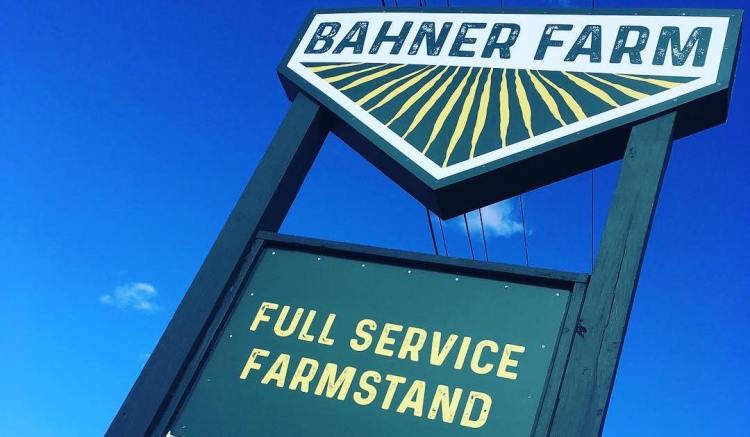“The other day I had to explain to my son why I have all this old, greenhouse plastic and tarping up on the third story of the barn,” said Mike Bahner over the phone last week. Bahner’s son is Nicky, 7, and he has a daughter, Lizzie, 9. He and his wife Christa just began their 11th season at Bahner Farm in Belmont, about five miles outside Belfast.
“It’s to keep the barn swallow poop from falling down on my shop. So, he wanted to know, ‘Why do you let them in?’
“And I said, ‘You don’t have a choice. If you have a barn, you have barn swallows. They’re guardians of the landscape. Every spring, when they return, that’s a great symbol for us. Nutritious food and a good living.”
Farm life is still an earthly romance, but it’s also a difficult business. Bahner Farm has been steadily building success through marketing and producing a high-quality product. They emphasize soil health Christa studied the topic at the University of Massachusetts) through crop rotation and actively managed compost using recipes developed with the Maine Department of Agriculture, Conservation and Forestry. They also recently received a USDA REAP grant for a solar installation.
According to the most recent federal data, Maine has the tenth highest total of organic farms in the country. For decades now, the local economy has supported organic farms through farmers markets, CSAs and demand for grocery chains to “buy local” as well.
The Bahners grow salad greens year-round for the wholesale market. About five years ago, they started a Winter Buying Club, at first to sell the greens then other inventory, too, directly to customers through online ordering. Those sales created year-round stability and the Bahners haven’t had to take an off-farm job since.
Then, in the last week of winter, COVID-19 shut down familiar patterns of living, but leaving small farms like the Bahner’s poised to expand.
“A good week was 40 to 50 orders,” said Mike. “All of a sudden, we were getting 100 orders for twice the amount of food. And then the pick-up—you feel like you’re a FEMA worker. We needed to have income and to keep things going, but we also just had to do it for our community. This was a safe way for people to get food.”
Community needs are woven through the business and the Bahners feel a similar responsibility to their customers that they do to the land. With limited spring inventory, Bahner Farm has yet to schedule its usual appearances at farmers markets, which leaves Mike worrying about those regulars.
What is no different this year though, is that everyone on Bahner Farm has been working hard—something every farmer does, no matter what type of farming they do, Mike Bahner emphasized.
“It can be a really hard life. To feel valued is like, the best. I had a customer tell me I was her hero. I don’t really feel like one, but it got me all choked up. It’s good to be wanted, for people to appreciate your work.”
Comments are not available on this story.
Send questions/comments to the editors.


